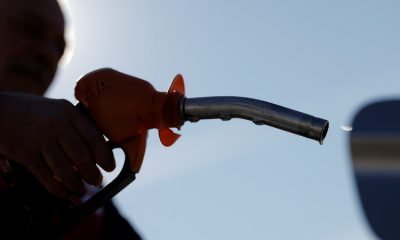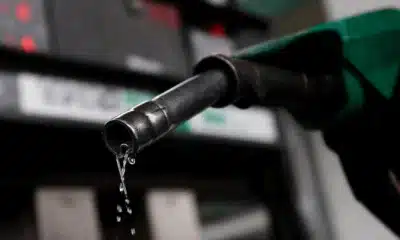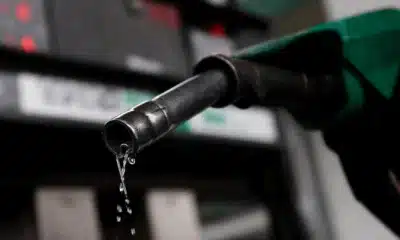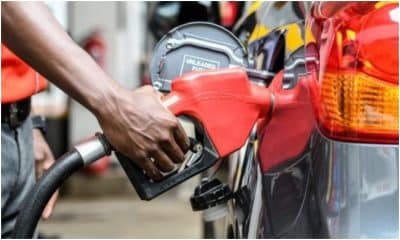Business
Foreign Exchange Affecting Petrol Importation – Oil Marketers
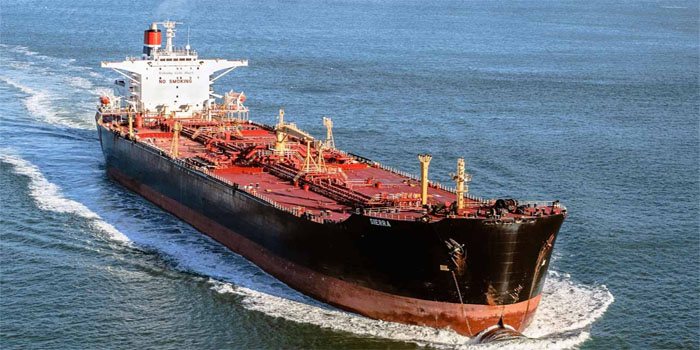
The Major Energies Marketers Association of Nigeria (MEMAN), representing the major downstream marketers, has expressed concerns about the potential difficulties in the distribution and supply chain of petroleum products due to the current intricacies of the foreign exchange market.
Speaking during a media forum held in Lagos recently, the Executive Secretary of MEMAN, Clement Isong, highlighted that the uncertainties in the forex market have hindered members from importing Premium Motor Spirit (PMS), commonly known as petrol or fuel.
He emphasized the challenges in accurately calculating the product’s landing cost, which affects the determination of the appropriate pump price.
Isong expressed the stance of his colleagues regarding the current challenges in the industry value chain, emphasizing that their investments are not completely safeguarded due to the dollarization of specific fees.
“The market and consumers are not immune to government policy that allows the Nigeria Ports Authority, NPA, and the Nigerian Maritime Administration and Safety Agency, NIMASA, to charge continuously in dollars,” said the MEMAN secretary.
Isong also mentioned that despite receiving products from Nigerian National Petroleum Company Limited, NNPCL Trading, the offload of ship-to-ship products is conducted in dollars, leading to an increase in the pump price.
He said, “We are presently concerned about the sustainability, efficiency, and affordability of energy for Nigerians, and we are encouraging the shift to energy transition, specifically into the gas space.”
What Happened After Fuel Subsidy Removal
Further analysis provided by Isong highlights the impact of the Federal Government’s intervention process post-subsidy regime exit on the petroleum industry.
According to him, the dollarisation policy has been identified as a key factor contributing to industry weakening and discouraging investment.
The blame is primarily attributed to the dollar’s fluctuating movement and the unpredictability of exchange rates. For example, Isong pointed out that marketers pay Government Agencies such as NPA and NIMASA around $10 per metric ton, which results in a higher pump price due to the current exchange rate.
Examining the forex market’s influence on the business, Isong referenced the subsidy removal by President Bola Tinubu in 2023. At that time, the cost of a litre was approximately ₦4.85. However, with the current exchange rate of about ₦1,600 per dollar, the cost has escalated to around ₦11.83 per litre. Similarly, the STS cost of $30 per metric ton, which was ₦14.54, has surged to ₦28.44 due to the exchange rate, further contributing to the pump price increase.
Regarding transportation costs, Isong noted that despite separate negotiations by marketers, transporters charge an additional average of ₦5-₦8 per litre.
Isong recommended that depot operators and filling stations explore transitioning to Compressed Natural Gas and other sustainable energy sources, such as solar, to achieve profitability and operational efficiency.
Addressing the subsidy repayment concerns, Isong highlighted the government’s ongoing efforts to support the industry, which some members of the public may have misunderstood as subsidy payments.
He mentioned that President Tinubu assured in July 2023 that the government would closely monitor the impact of exchange rates and inflation on fuel prices and step in when needed.
“We have seen those interventions at different times, and it provides a level of stability, but our advocacy is to encourage a paradigm shift to reduce operating costs. Trucks are encouraged to move from diesel to CNG, depots and retail outlets to move from diesel to CNG and/or solar energy,” Isong explained.
An expert in Liquified Petroleum Gas (LPG), Femi Fanoiki, who discussed the ongoing transition to gas with journalists, highlighted the efforts being made to promote the use of LPG in both industrial and automotive sectors.
Fanoiki emphasized that government interventions are encouraging investments in this area, but further infrastructure development is needed to enhance the adoption process.
Also, Adelanke Dayo-Adepoju, a gas and renewable energies specialist at MEMAN, spoke to the media about the advantages of Compressed Natural Gas (CNG) as an alternative to petrol and diesel.
She mentioned that significant efforts have been made to convert approximately 1 million vehicles to run on CNG by 2027 and establish over 1,000 conversion workshops nationwide.



